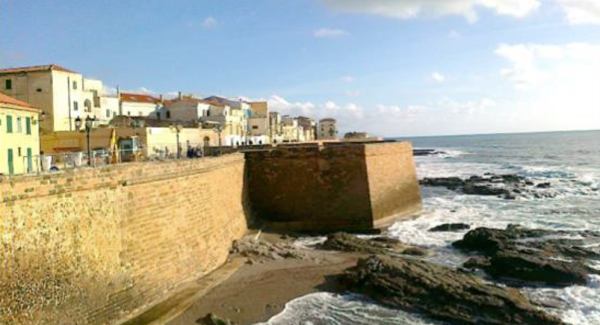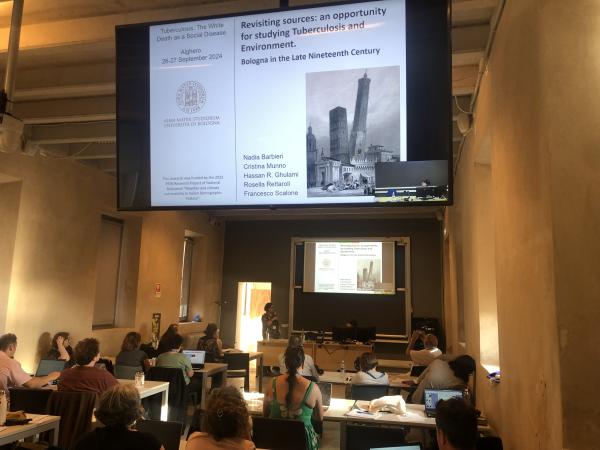Tuberculosis: The White Death as a Social DiseaseAlghero, Italy, 26–27 September 2024
This IUSSP workshop on "Tuberculosis: The White Death as a Social Disease" was organized by the IUSSP Scientific Panel on “Epidemics and Contagious Diseases: The Legacy of the Past” in collaboration with the Department of Economics and Business, University of Sassari and the EU-COST Action ‘The Great Leap’.
The workshop was organized by Lucia Pozzi (University of Sassari), Gabriele Ruiu (University of Sassari) and Michail Raftakis (University of Bologna) and held in Alghero, Sardinia 26–27 September 2024, hosted by the Department of Economic and Business Sciences at the University of Sassari.

Tuberculosis has been a significant public health concern, affecting millions of people worldwide throughout the nineteenth and twentieth centuries, with its impact persisting in certain regions today. It has drawn extensive attention due to its profound impact and intriguing debates surrounding it. Tuberculosis was historically a leading cause of death across various stages of life, especially in young adulthood. Its persistent nature resulted in a high prevalence and considerable burden of the disease. Ongoing discussions have focused on the key factors influencing geographical, gender, age, and temporal disparities in mortality, with particular emphasis on the interplay between resistance and exposure.
Despite the severity and significant mortality associated with tuberculosis in historical populations, the investigation of its demographic characteristics has unfortunately received relatively limited attention. Significant gaps remain in the available evidence concerning trends in tuberculosis mortality and morbidity, with research largely concentrated on historical North-Western Europe, particularly Britain and North America. This leaves a noticeable dearth of information from Eastern and Southern Europe and other regions beyond Europe (i.e., South America, Asia, and Africa), hindering a comprehensive understanding of the disease's impact in these areas.
The workshop aimed to foster a discussion among scholars from different disciplines, including historical demography, history of medicine and health, and economic and social history, focusing on various aspects of tuberculosis, and its relationships with other diseases. It covered diverse geographical contexts and employed macro- and micro-analytical approaches, incorporating quantitative and qualitative sources and methods.

Most workshop participants came from various European Countries (including Spain, Switzerland, Croatia, Poland, Netherlands, Sweden, Italy, UK, Ireland, Belgium, Lithuania, Romania, Denmark), with one participant from New Zealand, focusing on indigenous Māori communities. It is worth noting that several proposals were received from researchers in various African countries, India, the USA,and other parts of Europe, though participants withdrew due to financial constraints. This wide international participation underscores the global relevance of the topic.
The workshop was preceded by an ICD10h training session, organized within the activities of the project The Great Leap. Multidisciplinary approaches to health inequalities, 1800-2022 (COST Action: CA22116) coordinated by Alice Reid (University of Cambridge, UK) and Mayra Murkens (University of Groningen, NL). The session addressed the complex process of standardizing and coding historical causes of death into the newly developed ICD10h, with a particular focus on the tuberculosis-related deaths. Participants also learned to apply semi-automatic tools for classifying ICD10h-codes into disease categories.
Selected papers from the workshop will be published in a special issue of a peer-reviewed demographic journal, co-edited by the workshop organizers, in early 2026.
Financial support for the meeting was provided by the Department of Economics & Business, University of Sassari, Fondazione di Sardegna, EU Great Leap Cost Action (CA22116). A further support has been provided by the project 'APEGADRUS' under DM 737/2021 resources 2021–2022, financed by NextGenerationEU.
|
